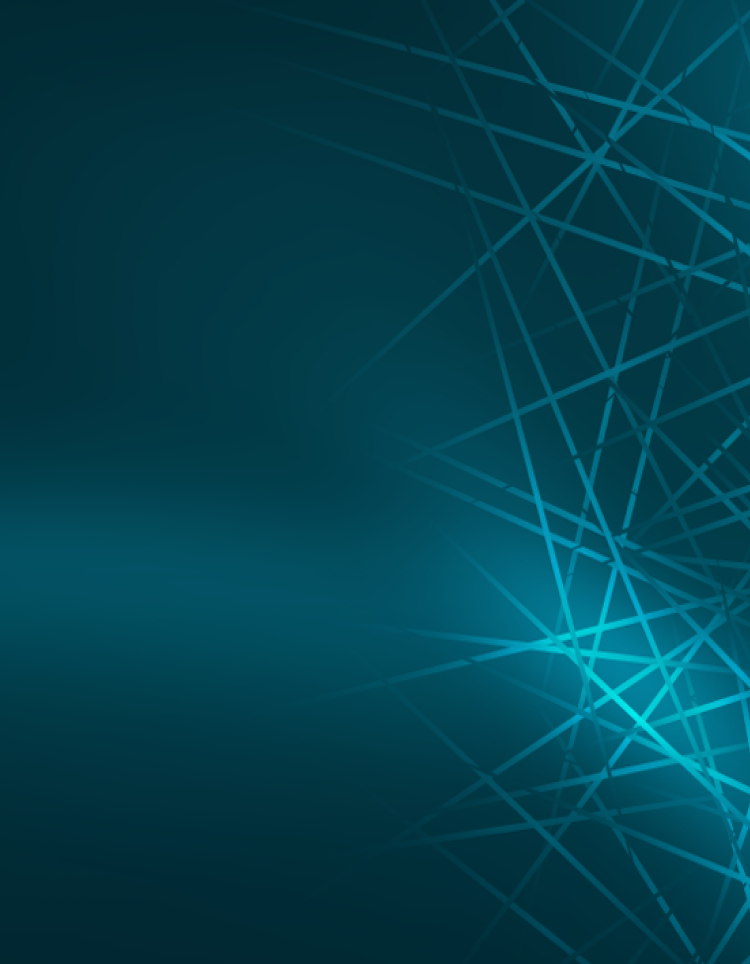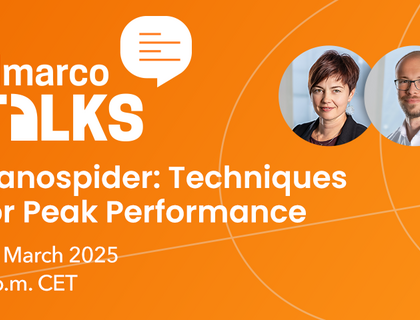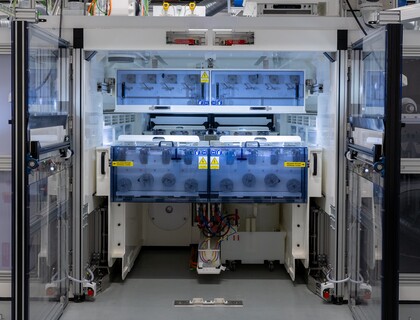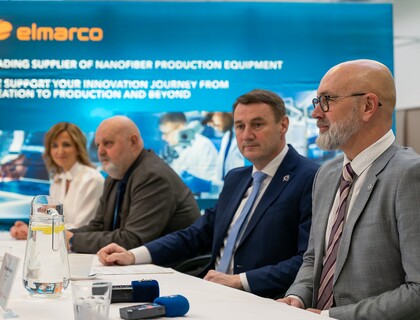
Webinar recording: Electrospinning in Medical Applications (special edition)

Date: Thursday, February 23, 2023
Time: 3:00pm - 4:30pm CET
Speakers: Prof. Dr. Dr. hab. Andrea Ehrmann and M.Sc. Henrik‑Alexander Christ
Content of webinar:
- 1. Growth of mammalian cells on electrospun nanofiber mats by Prof. Dr. Dr. hab. Andrea Ehrmann
- 2. Electrospinning of modified chitosan for medical uses by M.Sc. Henrik‑Alexander Christ
- 3. Discussion
PART 1: Growth of mammalian cells on electrospun nanofiber mats
- Nanofiber mats can be produced by electrospinning from diverse polymers and polymer blends as well as with embedded ceramics, metals, etc. The large surface‑to-volume ratio makes such nanofiber mats a well‑suited substrate for tissue engineering and other cell growth experiments. Here we give an overview of possible modifications of nanofiber mats in terms of material and morphology to support cell growth and adhesion.
About speaker:
Andrea Ehrmann is full professor for measurement technology, physics and textile technologies at Bielefeld University of Applied Sciences, Germany. Her research covers the whole textile chain, from electrospinning to functionalization by 3D printing, and the corresponding applications, e.g. cell growth on electrospun nanofiber mats.
About Bielefeld University of Applied Sciences:
With the Faculties of Design, Minden Campus, Engineering and Mathematics, Social Sciences, Business and Health at our three campuses in Bielefeld, Minden and Gütersloh, Bielefeld University of Applied Sciences (FH Bielefeld) works closely together with the industrial and business communities and social and cultural institutes in East Westphalia.
More info:
PART 2: Electrospinning of modified chitosan for medical uses
- Nanofibrous chitosan is one of the most promising candidates for many areas, ranging from medical application such as wound dressing and tissue engineering to pharamceutical and biotechnology uses such as immobilization of biocatalyst. However, for realization of its full potential, chemical modification of the polymer chains are often needed. Here we describe and unentangle the complex electrospinning process of such highly modified chitosan derivatives and shed light on the potential fields of application that will benefit from the resulting nanofibers.
About speaker:
Christ is a trained polymer chemist, with a strong research focus on natural and biobased polymers, electrospinning and biotechnology. He is currently finishing his PhD at the Technical University of Braunschweig (TU Braunschweig), where his basic research, underlying his presentation, was carried out. At his current employer, the Fraunhofer Institute for Wood Research – Wilhelm‑Klauditz-Institut WKI (department BICO), his work centers around innovative solutions for wood coatings, printing inks and and adhesives from renewable natural building blocks. Here he is applying his fundamental research and developed methods from university in different research projects as project leader.
About Fraunhofer Institute for Wood Research – Wilhelm‑Klauditz-Institut:
- The Fraunhofer Institute for Wood Research – Wilhelm‑Klauditz-Institut WKI is specialized in bio‑based chemical products and materials, production technology, functional integration, lightweight construction, material and product testing, recycling processes and indoor air quality. Almost all processes, materials and products resulting from our research activities are used industrially. We operate worldwide and work project‑related with research institutions and industrial partners, e. g. with companies from the wood and furniture industries, the construction industry, the chemical industry, the packaging industry and the automotive industry. We develop materials and technologies for a bio‑based, resource‑conserving and climate‑friendly economic cycle - from raw materials to development and quality assurance to recycling.
More info:
- https://www.wki.fraunhofer.de/en.html
- https://www.wki.fraunhofer.de/en/departments/bico/profile.html
- https://www.tu‑braunschweig.de/itc/menzel


